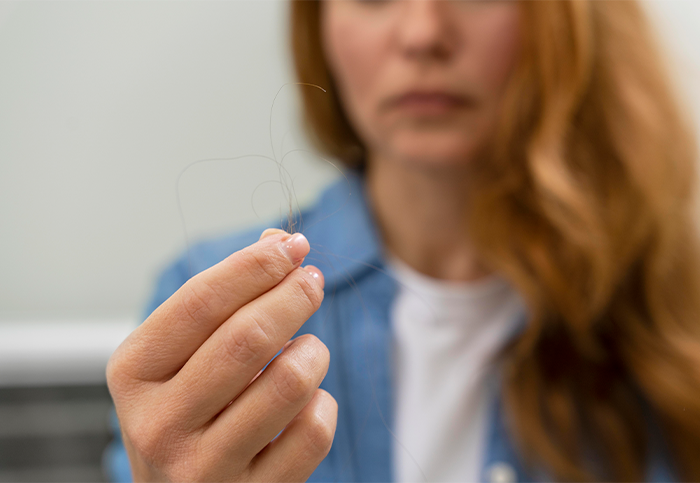Can Hormonal Imbalance Cause PCOS?

PCOS has been the most common health issue among women of reproductive age for the past decade. PCOS is a prevailing health concern, affecting around 1 in 10 women of reproductive age. Polycystic ovary syndrome (PCOS) is a condition in which women suffer from missing, irregular, or long periods.
As PCOS is a prevalent issue and of great concern, most women search for how to treat and manage this issue. But before management, it is essential to know the causative agents of PCOS so that this issue can be managed better. By reading this article, you will be able to conclude how much role hormonal imbalance plays in PCOS.
What is PCOS?
PCOS is a reproductive health disorder due to hormonal imbalances and metabolic problems. It is the condition in which women suffer from irregular or absent menstrual cycles.
Prevalence of PCOS
According to the journal of physicians and surgeons in Pakistan, PCOS affects around 4-18% of women worldwide. This rate is higher in Asian Pakistani women, accounting for 52%, far more than UK women, which is 20-25%. Moreover, the cases of this problem are increasing day by day, which is an alarming situation. Therefore, you must have proper knowledge about this disorder so that in case you feel symptoms; you can go for the diagnosis as soon as possible.
Does Hormonal Imbalance Cause PCOS?
Before answering this question, it is important to know the significance of hormones in regulating the menstrual cycle.
Role of Hormones in Regulating Menstrual Cycle
Hormones play a significant role in regulating the menstrual cycle. Two important hormones named Follicle-Stimulating Hormone (FSH) and Luteinizing Hormone (LH) contribute majorly to this phenomenon. They promote follicles’ growth and stimulate them to release an egg, thereby regulating the normal menstrual cycle every month.
But, in certain situations, when this hormonal balance disrupts, it causes irregularity in the menstrual cycle leading to PCOS.
When FSH and LH are not produced in an optimal amount, the egg doesn’t release from the ovaries; instead, cysts (small fluid-filled sacs) begin to form in the ovaries, causing inflamed ovaries. This causes an irregular menstrual cycle leading to polycystic ovary syndrome.
Furthermore, when these hormone levels get disturbed, there is another hormone called testosterone (male sex hormone) which begins to level up in women causing excessive facial & body hair and male pattern baldness. Women also suffer from other symptoms of PCOS listed below:

- Missed or heavy periods
- Acne
- Weight gain
- Headaches
- Hair loss
- Infertility (in severe cases)
How to Manage PCOS?
Although PCOS has no specific cure, checking on weight maintenance, healthy eating, physical activity, and hormonal balance can help manage this syndrome. Hormones are one of the major causes of PCOS, which must be kept in balance to avoid getting this issue.
It is also important to check on what causes hormonal imbalance. Most of the time, it is stress, excessive use of steroids, and an unbalanced diet for a long time that causes hormonal imbalance, which may lead to PCOS.
To overcome the risk of this problem, consider taking a balanced diet rich in fruits and vegetables and a good quality food supplement for hormonal balance.

Nutrifactor’s Femrose 500 (halal softgels) and Femrose Evening Primrose Oil can be good choices for hormonal imbalance & PCOS symptoms.
These supplements contain evening primrose oil, which is rich in omega-6 fatty acids, GLA and LA. They provide benefits in the following ways:
- Supports the hormonal balance in the body
- Helps reduce inflammation
- Helps ease menstrual discomfort
- Helps minimize the symptoms of PCOS and PMS
- Helps reduce acne breakouts and maintain skin hydration
References:
- https://www.ncbi.nlm.nih.gov/pmc/articles/PMC7879843/
- https://www.cdc.gov/diabetes/basics/pcos.html
- https://www.hopkinsmedicine.org/health/conditions-and-diseases/polycystic-ovary-syndrome-pcos
- https://www.mayoclinic.org/diseases-conditions/pcos/symptoms-causes/syc-20353439
- https://www.ncbi.nlm.nih.gov/pmc/articles/PMC3963304/
- JCPSP | Journal of College of Physicians and Surgeons Pakistan



